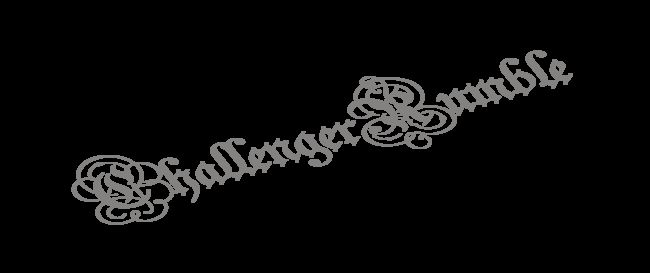cin.get()与getchar()函数有什么区别?
C++中几个输入函数的用法和区别(cin、cin.get()、cin.getline()、getline()、gets()、getchar()))
1、cin2、cin.get() 3、cin.getline()4、getline() 5、gets()6、getchar()
1、cin>>
用法1:最基本,也是最常用的用法,输入一个数字:
#include <iostream>
using namespace std; int main ()
{
<span style="white-space:pre"> </span>int a,b;
<span style="white-space:pre"> </span>cin >> a >> b;
<span style="white-space:pre"> </span>cout << a+b << endl;
<span style="white-space:pre"> </span>return 0;
}
输入:2
3
输出:5
用法2:接受一个字符串,遇“空格”、“TAB”、“回车”都结束
#include <iostream>
using namespace std;
int main ()
{
<span style="white-space:pre"> </span>char a[20];
<span style="white-space:pre"> </span>cin >> a;
<span style="white-space:pre"> </span>cout << a << endl;
<span style="white-space:pre"> </span>return 0; }
输入:jkljkljkl
输出:jkljkljkl
输入:jkljkl jkljkl //遇空格结束,所以不能输入多个单词
输出:jkljkl
2、cin.get()
用法1: cin.get(字符变量名)可以用来接收字符
#include <iostream>
using namespace std;
int main ()
{
<span style="white-space:pre"> </span>char ch;
<span style="white-space:pre"> </span>ch = cin.get(); //或者<span style="font-family: Tahoma;">cin.get(ch);只能获取一个字符</span>
<span style="white-space:pre"> </span>cout << ch <<endl;
<span style="white-space:pre"> </span>return 0;
}
输入:jljkljkl
输出:j
用法2:cin.get(字符数组名,接收字符数目)用来接收一行字符串,可以接收空格
#include <iostream>
using namespace std;
int main ()
{
<span style="white-space:pre"> </span>char a[20];
<span style="white-space:pre"> </span>cin.get(a,20); //有些类似getline。可以输入多个单词,中间空格隔开。
<span style="white-space:pre"> </span>cout << a << endl;
<span style="white-space:pre"> </span>return 0;
}
输入:jkl jkl jkl
输出:jkl jkl jkl
输入:abcdeabcdeabcdeabcdeabcde (输入25个字符)
输出:abcdeabcdeabcdeabcd (接收19个字符+1个'\0')
用法3:cin.get(无参数)
没有参数主要是用于舍弃输入流中的不需要的字符,或者舍弃回车,弥补cin.get(字符数组名,接收字符数目)的不足.
这个我还不知道怎么用,知道的前辈请赐教;
3、cin.getline()// 接受一个字符串,可以接收空格并输出
<pre name="code" class="cpp">#include <iostream>
using namespace std;
int main ()
{
<span style="white-space:pre"> </span>char m[20];
<span style="white-space:pre"> </span>cin.getline(m,5); //与上面基本相同。
<span style="white-space:pre"> </span>cout << m << endl;
<span style="white-space:pre"> </span>return 0;
}
输入:jkljkljkl
输出:jklj
接受5个字符到m中,其中最后一个为'\0',所以只看到4个字符输出;
如果把5改成20:
输入:jkljkljkl
输出:jkljkljkl
输入:jklf fjlsjf fjsdklf
输出:jklf fjlsjf fjsdklf
//延伸://cin.getline()实际上有三个参数,cin.getline(接受字符串到m,接受个数5,结束字符)//当第三个参数省略时,系统默认为'\0' 是‘/n’吧。//如果将例子中cin.getline()改为cin.getline(m,5,'a');当输入jlkjkljkl时输出jklj,输入jkaljkljkl时,输出jk
当用在多维数组中的时候,也可以用cin.getline(m[i],20)之类的用法:
#include<iostream>
#include<cstring>
using namespace std; int main ()
{
<span style="white-space:pre"> </span>char m[3][20];
<span style="white-space:pre"> </span>for(int i = 0;i < 3;i++)
<span style="white-space:pre"> </span>{
<span style="white-space:pre"> </span>cout << "\n请输入第" << i+1 << "个字符串:" << endl;
<span style="white-space:pre"> </span>cin.getline(m[i],20);
<span style="white-space:pre"> </span>} <span style="white-space:pre"> </span>cout << endl;
<span style="white-space:pre"> </span>for(int j = 0;j < 3;j++)
<span style="white-space:pre"> </span>cout << "输出m[" << j << "]的值:" << m[j] << endl;
<span style="white-space:pre"> </span>return 0; }
请输入第1个字符串:kskr1
请输入第2个字符串:kskr2
请输入第3个字符串:kskr3
输出m[0]的值:kskr1
输出m[1]的值:kskr2
输出m[2]的值:kskr3
4、getline() // 接受一个字符串,可以接收空格并输出,需包含“#include<cstring>”
#include<iostream>
#include<cstring>
using namespace std;
int main ()
{
<span style="white-space:pre"> </span>string str;
<span style="white-space:pre"> </span>getline(cin,str);
<span style="white-space:pre"> </span>cout << str << endl;
<span style="white-space:pre"> </span>return 0;
}
输入:jkljkljkl //VC6中有个bug,需要输入两次回车。
输出:jkljkljkl
输入:jkl jfksldfj jklsjfl
输出:jkl jfksldfj jklsjfl
和cin.getline()类似,但是cin.getline()属于iostream流,而getline()属于string流,是不一样的两个函数
5、gets() // 接受一个字符串,可以接收空格并输出,需包含“#include<cstring>”
#include<iostream>
#include<cstring>
using namespace std;
int main ()
{
<span style="white-space:pre"> </span>char m[20];
<span style="white-space:pre"> </span>gets(m); //不能写成m = gets();
<span style="white-space:pre"> </span>cout << m << endl;
<span style="white-space:pre"> </span>return 0;
}
输入:jkljkljkl
输出:jkljkljkl
输入:jkl jkl jkl
输出:jkl jkl jkl
类似cin.getline()里面的一个例子,gets()同样可以用在多维数组里面:
#include<iostream>
#include<cstring>
using namespace std; int main ()
{
<span style="white-space:pre"> </span>char m[3][20];
<span style="white-space:pre"> </span>for(int i = 0;i < 3;i++)
<span style="white-space:pre"> </span>{
<span style="white-space:pre"> </span>cout << "\n请输入第" << i+1 << "个字符串:" << endl;
<span style="white-space:pre"> </span>gets(m[i]);
<span style="white-space:pre"> </span>} <span style="white-space:pre"> </span>cout << endl;
<span style="white-space:pre"> </span>for(int j = 0;j < 3;j++)
<span style="white-space:pre"> </span>cout << "输出m[" << j << "]的值:" << m[j] << endl;
<span style="white-space:pre"> </span>return 0; }
请输入第1个字符串:kskr1
请输入第2个字符串:kskr2
请输入第3个字符串:kskr3
输出m[0]的值:kskr1
输出m[1]的值:kskr2
输出m[2]的值:kskr3
自我感觉gets()和cin.getline()的用法很类似,只不过cin.getline()多一个参数罢了;
这里顺带说明一下,对于本文中的这个kskr1,kskr2,kskr3的例子,对于cin>>也可以适用,原因是这里输入的没有空格,如果输入了空格,比如“ks kr jkl[回车]”那么cin就会已经接收到3个字符串,“ks,kr,jkl”;再如“kskr 1[回车]kskr 2[回车]”,那么则接收“kskr,1,kskr”;这不是我们所要的结果而cin.getline()和gets()因为可以接收空格,所以不会产生这个错误;gets跟getline差别就是getline有后面参数的限制 而gets没有 会产生越界行为。
6、getchar() //接受一个字符
#include<iostream>
using namespace std;
int main ()
{
<span style="white-space:pre"> </span>char ch;
<span style="white-space:pre"> </span>ch = getchar(); //不能写成getchar(ch);
<span style="white-space:pre"> </span>cout << ch << endl;
<span style="white-space:pre"> </span>return 0;
}
输入:jkljkljkl
输出:j
//getchar()是C语言的函数,C++也可以兼容,但是尽量不用或少用;
